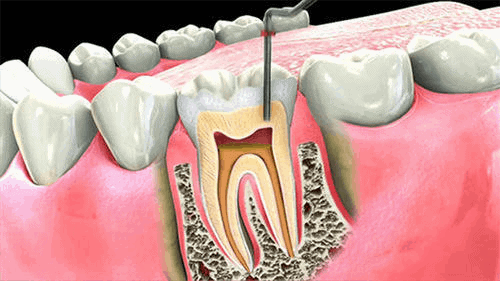Tooth cavities and decay are among the most common dental problems worldwide. According to research, one-third of Australian adults have untreated tooth cavities.
These dental problems occur due to poor oral hygiene and bacterial infections. Since our teeth are prone to infections, the soft tissue and dental pulp inside the tooth may get damaged over time. However, along with causing discomfort and pain, dental problems also affect your smile, and you may need expensive treatments.
Your doctor might have recommended a root canal treatment or tooth extraction if you also have a severely decade or damaged tooth. Are you having trouble deciding between a root canal vs tooth extraction? Fret not. We are here to help you. Read this article to learn which one is better for you.
What is a Root Canal?
A root canal is an endodontic treatment to save a badly infected or damaged tooth. With an almost 95% success rate, the root canal will have little to no future complications.
In this treatment, you get rid of the infected dental pulp, and the dentist cleans the tooth. After that, the dentist seals the tooth and uses a crown to protect the treated tooth.
Root Canal Procedure
The root canal procedure is relatively straightforward. Although it’s believed that a root canal is believed to be a painful procedure, your dentist will numb the area (or may use an anesthetic) before making an incision in the infected tooth and then removing the damaged or dead pulp. The next step is comprehensively cleaning the pulp chambers to guarantee that no bacteria are left behind after removing the pulp.
Depending on the condition of an infected tooth, multiple visits may be necessary for your root canal. It’s common to have discomfort for a few days following your operation. Although the pain may range from a dull ache to severe or acute pain, you should be able to relieve the pain using over-the-counter painkillers.
Pros:
- It helps save your tooth.
- Quick healing.
- Low or zero risk of infection.
- No future complications.
Cons:
- It can be painful.
- It costs more.
- It needs multiple dental visits.
What is Tooth Extraction?
In tooth extraction, the infected or damaged tooth is removed or extracted. While it is the only alternative to the root canal, future complications are associated with the procedure.
Tooth Extraction Procedure
Your dentist will numb the region so you won’t experience any pain when he pulls out your tooth. Then, while your tooth is still in its socket, doctors will use an elevator to remove it. The dentist formally extracts the tooth by using forceps. While this is happening, you might feel some pressure. This treatment needs only a single dental visit.
Once the dentist extracts the tooth, you must bite on a piece of gauze for around 45 minutes to stop the bleeding. A minor face swelling and light bleeding for the first 24 hours following the treatment is normal. The healing process for the extraction site might take at least two weeks to a month.
Pros:
- It needs a single dental visit.
- It costs less.
- It involves less pain.
Cons:
- The healing process is long and sometimes painful.
- The tooth is lost forever.
- Risk of infection.
- It has future complications.
- You may need complex or costly treatments to fill the gap.
Root Canal vs Tooth Extraction
When deciding on root canal vs tooth extraction, you should choose the treatment depending on your preference. However, saving your natural tooth is a better option as it’ll save you from future complications and eliminate the need for complex and expensive treatments following the procedure.
Dental Treatments in Ashfield, NSW, Australia
At Ashfield Family Dental, we offer a good range of dental treatments, which include root canals and tooth extractions in Ashfield, NSW, Australia. To find out more about our services, contact our customer service today.




